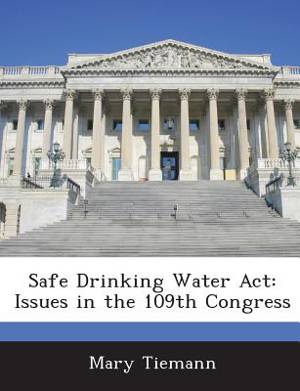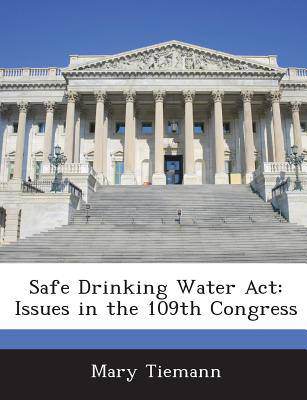
- Retrait gratuit dans votre magasin Club
- 7.000.000 titres dans notre catalogue
- Payer en toute sécurité
- Toujours un magasin près de chez vous
- Retrait gratuit dans votre magasin Club
- 7.000.000 titres dans notre catalogue
- Payer en toute sécurité
- Toujours un magasin près de chez vous
20,45 €
+ 40 points
Description
In the 109th Congress, key drinking water issues have involved water infrastructure funding and problems caused by specific contaminants, such as the gasoline additive methyl tertiary butyl ether (MTBE), perchlorate, and lead in drinking water. Congress last reauthorized the Safe Drinking Water Act (SDWA) in 1996, and although funding authority for most SDWA programs expired in FY2003, reauthorization bills have not been proposed, as the Environmental Protection Agency (EPA), states, and water systems remain focused on implementing the requirements of the 1996 amendments. One SDWA amendment has been enacted in the 109th Congress. The Energy Policy Act of 2005, Section 322, amended SDWA to preclude the EPA from regulating the injection of any fluids, except diesel fuel, into underground sources of drinking water for hydraulic fracturing purposes related to oil, gas, and geothermal production. Congress also has considered legislation to address concerns about drinking water contamination by perchlorate, the key ingredient in solid rocket fuel. The House passed H.R. 18 and H.R. 186, which would establish groundwater remediation programs in California, where most perchlorate contamination has been identified. Other bills would direct the EPA to issue a SDWA standard for perchlorate. The 107th Congress added drinking water security provisions to the SDWA in the Bioterrorism Preparedness Act. The act required community water systems to conduct vulnerability assessments and prepare emergency plans, and it called for drinking water security research. In the 109th Congress, several bills, including a reported bill, S. 2145, would add further water security requirements for certain water systems. An overriding SDWA issue involves the cumulative cost and complexity of drinking water standards and the ability of water systems, especially small systems, to comply with standards. The issue of the affordability of drinking water standards, such as the new arsenic standard, has merged with the larger debate over the federal role in assisting communities with financing drinking water infrastructure. Congress authorized a drinking water state revolving fund (DWSRF) program in 1996 to help communities finance projects needed to comply with drinking water standards. For FY2006, Congress provided $837.5 million for this program. However, studies show that a large funding gap exists and could continue to grow as SDWA requirements increase and infrastructure ages. The Senate Environment and Public Works Committee has reported S. 1400, the Water Infrastructure Financing Act, to authorize increased funding for the DWSRF and parallel wastewater programs, and to provide grant assistance for small communities. Several other bills would establish a grant program to help small communities comply with drinking water standards and provide greater compliance flexibility for small water systems. This report, which will be updated as warranted, replaces CRS Issue Brief IB10118, Safe Drinking Water Act: Implementation and Issues, by Mary Tiemann.
Spécifications
Parties prenantes
- Auteur(s) :
- Editeur:
Contenu
- Nombre de pages :
- 26
- Langue:
- Anglais
Caractéristiques
- EAN:
- 9781288670758
- Date de parution :
- 28-01-13
- Format:
- Livre broché
- Format numérique:
- Trade paperback (VS)
- Dimensions :
- 189 mm x 246 mm
- Poids :
- 68 g







